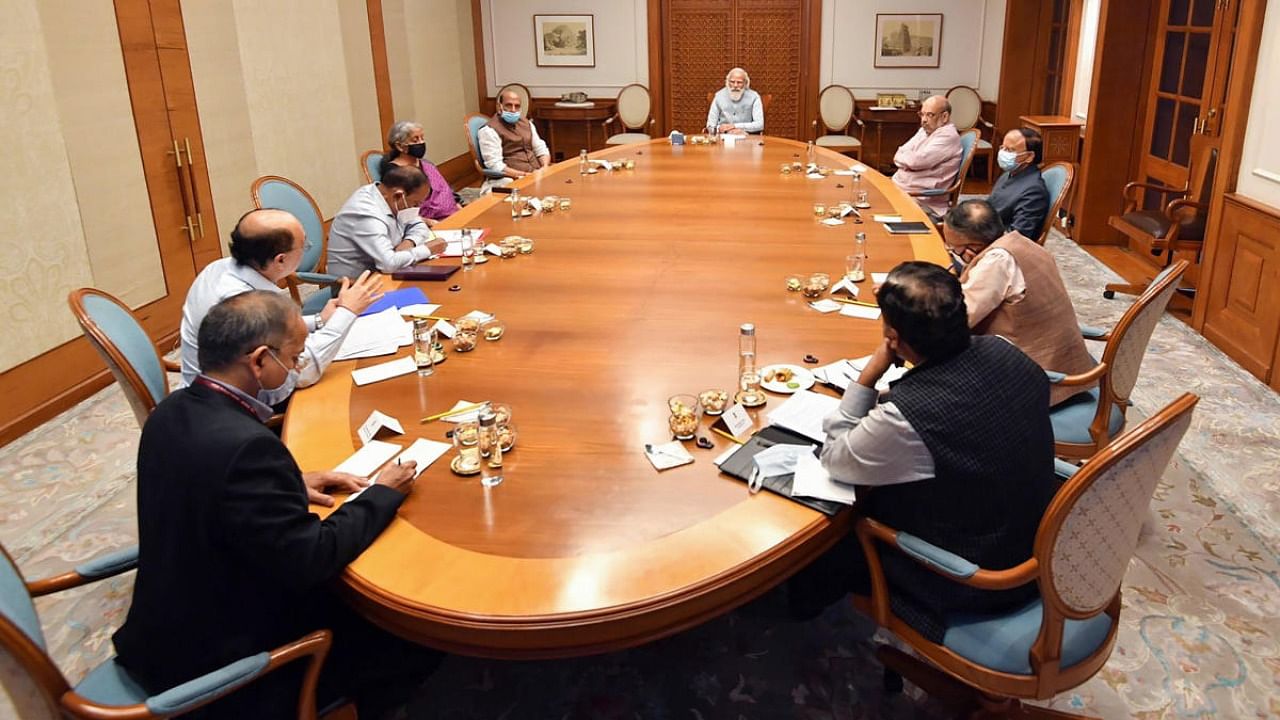
India will wait and watch for some time instead of hastily deciding on its approach to the new regime in Afghanistan.
Though New Delhi has evacuated its envoy and diplomats from Kabul on Tuesday, it has not formally announced the closure of the Embassy of India in the capital of Afghanistan, as it would have meant severance of diplomatic relations between the two nations – a decision Prime Minister Narendra Modi’s government has not yet taken.
The Prime Minister had a meeting with Defence Minister Rajnath Singh, Home Minister Amit Shah and Finance Minister Nirmala Sitharaman on Tuesday and discussed India’s options in Afghanistan. National Security Advisor Ajit Doval, Foreign Secretary Harsh Shringla and India’s envoy to Afghanistan, Rudrendra Tandon, who returned to New Delhi earlier on the day, were also present in the meeting.
New Delhi already signalled that it might recognize a new regime in Kabul with participation from the Taliban, if it was an “inclusive dispensation” with representation of all communities of Afghanistan, respected the aspirations of the children and voices and rights of women and promised not to allow anyone to use the country to export terror to other countries in the region and beyond.
“It's not that we've abandoned people of Afghanistan, their welfare and our relationship with them is very much in our mind,” Tandon said after the aircraft carrying him and other diplomats and officials from Kabul landed at the Indian Air Force station at Jamnagar in Gujarat for refuelling. “We'll try and continue our interaction with them, I can't exactly say in what form as situation is changing.”
The Taliban over the past few days sought to send out the message that its new incarnation in power would be different from the previous one, which had between 1996 and 2001 enforced an austere version of Shariah, banning TV, denying women’s rights to education and work, punishing and executing women and other offenders in public. New Delhi is not convinced though, as it believes that Pakistan would try to take advantage of Taliban’s return to power in Kabul to gain a strategic depth against India.
President Ashraf Ghani’s government in Kabul collapsed as he left Afghanistan soon after the Taliban militants entered the capital city on Sunday, after occupying a large number of provincial capitals across the country. New Delhi, however, is keeping tab on efforts by his predecessor Hamid Karzai, the chairman of Afghanistan’s High Council for National Reconciliation and veteran warlord and politician Gulbuddin Hekmatyar to form a coordination council as well on negotiations with Taliban to set up a transition government in Kabul. Soon after Taliban’s political leader Mullah Baradar reached Kandahar from Doha on Tuesday, Ghani Government’s first Vice President Amrullah Saleh took to Twitter to declare himself as the caretaker President of Afghanistan from an undisclosed location.
India earlier withdrew its officials from its consulates in Herat, Jalalabad, Kandahar and Mazar-e-Sharif in Afghanistan as the Taliban launched its military offensives and occupied a large number of districts across the country over the past few weeks, before finally entering Kabul on Sunday. None of the consulates was formally closed down and was left to be run by the local employees.
New Delhi had on September 26, 1996 last shut down the Embassy of India in Kabul and evacuated its diplomats and officials onboard a special aircraft of the Ariana Airlines – just hours before the Taliban had taken over power in the capital of Afghanistan.
